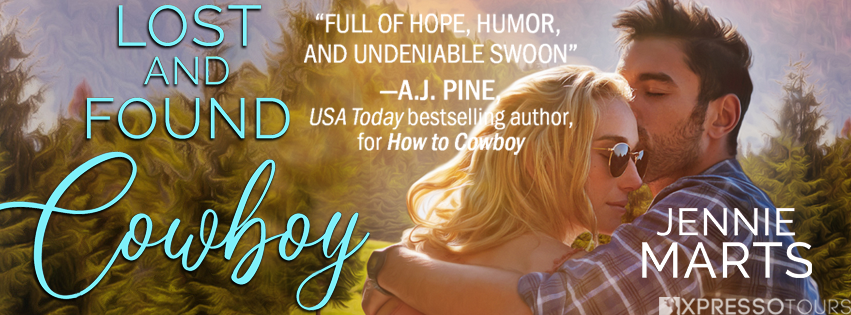Synopsis
An inspiring tale of a fourth-grader who fights back when
her favorite book is banned from the school library--by starting her own
illegal locker library!
It all started the day Amy Anne Ollinger tried to check out her favorite book
in the whole world, From the Mixed-Up Files of Mrs. Basil E. Frankweiler, from
the school library. That's when Mrs. Jones, the librarian, told her the bad
news: her favorite book was banned! All because a classmate's mom thought the
book wasn't appropriate for kids to read.
Amy Anne decides to fight back by starting a secret banned books library out of
her locker. Soon, she finds herself on the front line of an unexpected battle
over book banning, censorship, and who has the right to decide what she and her
fellow students can read.
Reminiscent of the classic novel Frindle by Andrew Clements for its inspiring
message, Ban This Book is a love letter to the written word and its power to
give kids a voice.
Praise for BAN THIS BOOK
“Readers, librarians, and all those books that have drawn a challenge have a
brand new hero in Amy Anne Ollinger. She's a true champion and testament to how
doing a good thing is the first step in finding your own courage."―Kathi
Appelt, Newbery Honor winning author of The Underneath
"Ban This Book is absolutely brilliant and belongs on the shelves of every
library in the multiverse."―Lauren Myracle, author of the
best-selling Internet Girls series, the most challenged
books of 2009 and 2011
"A stout defense of the right to read." ―Kirkus Reviews
“Gratz delivers a book lover’s book that speaks volumes about kids’ power to
effect change at a grassroots level." ―Publisher’s Weekly
Excerpt:
The
Mystery of the Missing Book
It all started the day my favorite book went missing from
the library.
I didn’t know it was missing. Not yet. In my mind, it was
still sitting there all alone on the shelf like a kid in the cafeteria waiting
for her one and only friend to come and find her. Waiting for me to
find her. All I wanted to do was run to the library and check out my favorite
book before homeroom, but Rebecca, my one and only real-life friend, was still
talking about trademarking our names.
“Have you ever thought about registering
AmyAnneOllinger.com?” Rebecca asked me.
“No, Rebecca, I have never thought about registering
AmyAnneOllinger.com. I am nine years old. Why in the world would I bother to
register a Web site with my name on it when my parents won’t even let me use
Facebook yet?”
That’s what I thought about saying. What I said instead
was, “No.”
“You should,” Rebecca told me. “You’ve got a unique name,
but even so, somebody could register it, and then what would you do?
RebeccaZimmerman.com is already gone! I’m ten years old, and already my future
intellectual property is being snapped up! Jay Z and Beyoncé trademarked their
baby’s name less than a month after she was born. You’d think my parents would
have known enough to do the same.”
Rebecca’s parents were both lawyers, and she wanted to be
one too when she grew up. I couldn’t imagine a more boring job.
Instead I said, “Yeah.”
I was still itching to get to the library and check out
my favorite book. I opened my locker to stuff my backpack inside and gave my
mailbox a quick look.
Nobody knows how it got started, but everybody at
Shelbourne Elementary has these cardboard boxes taped to the inside door of
their lockers, just below the little vents they put on there in case you get
stuffed in your locker by a bully. If you want to leave a note for somebody you
just slip the piece of paper in the slot and it falls right into the little
cardboard box. It’s such a tradition that Mr. Crutchfield, the custodian, just
leaves the boxes in the lockers from year to year.
As usual, my mailbox was empty. Which I’d expected. My
one and only friend doesn’t believe in writing notes. “Never leave a paper
trail,” Rebecca says.
More advice from her lawyer parents.
“Did you hear about Morgan Freeman, the actor?” Rebecca
asked. “Somebody who wasn’t named Morgan Freeman registered his name at
morganfreeman.com, and he had to sue them to get it back!
Now that’s an interesting case—”
“I can’t imagine anything less interesting,
Rebecca! I don’t care anything about trademarks or registering domain names. I
have to go check out my favorite book before somebody else does!”
That’s what I wanted to tell her. Instead I held up a
handful of books like a shield and said, “I have to return these books to the
library before class!” and backed away before she could tell me more about the
court case. “I’ll see you in homeroom!” I called.
Normally I would already have my favorite book checked
out and in my backpack, but our librarian, Mrs. Jones, has a rule that you can
only renew a book two times in a row, and then it has to sit on the shelf
for five whole school days before you can check it out again. She
says it’s to make sure other people get a chance to read it, but I think she
made that rule up just to make me read other books, which I would have done
anyway.
I dumped last night’s books in the book return and waved
good morning to Mrs. Jones on the way to the fiction shelves.
“Amy Anne,” Mrs. Jones called. “Honey, wait—”
“Just let me grab my book,” I called back. I turned into
the H–N shelves and hurried to where I knew my favorite book would be waiting
for me.
Only it wasn’t there.
I looked again. It still wasn’t there. I looked behind
the books, in case it had gotten pushed back and was hidden behind the others
like they sometimes do, but no. It really wasn’t there. But my favorite book
was always on the shelf. Could somebody else really have checked it
out?
I was about to go and ask Mrs. Jones when she turned down
the row. Mrs. Jones is a big white lady with short brown hair and rhinestone
granny glasses that hang around her neck on a chain when she isn’t reading.
Today she was wearing a red dress with white polka dots. Polka dots are her
thing.
“Where’s my book?” I asked her.
“That’s what I was trying to tell you, honey,” Mrs. Jones
said. “I knew you’d come in for it first thing.”
“It’s been five days,” I told her. “I marked it down on
my calendar. I get to check it out again after five days. You said so. Did
somebody—did somebody else check it out?”
“No, Amy Anne. I had to take it off the shelf.”
I frowned. Take it off the shelf? What did she mean, take
it off the shelf?
“Why?”
Mrs. Jones sighed and wrung her hands. She looked like
she was about to tell me my dogs had died. “Because some parents got together
and said they didn’t think it was appropriate for elementary school, and the
school board agreed with them.”
“Wasn’t appropriate? What does that mean?”
“It means I can’t check it out to you, honey, or to
anybody else. Not until I talk to the school board and get this nonsense
overturned.
“It means, Amy Anne, that your favorite book was banned
from the school library.”
Copyright
© 2017 by Alan Grantz
Reader’s
guide copyright © 2017 by Tor Books
ABOUT THE
AUTHOR
Alan Gratz‘s first novel, Samurai Shortstop,
was named one of the ALA’s 2007 Top Ten Best Books for Young Adults. His second
novel, Something Rotten, was a 2008 ALA Quick Pick for Young Adult
Readers, and was followed by a sequel, Something Wicked, in October 2008. His
first middle grade novel, The Brooklyn Nine, was one of the ALA’s Top Ten
Sports Books for Youth and Top Ten Historical Books for Youth, and his middle
grade Holocaust novel Prisoner B-3087 was one of YALSA’s 2014 Best Fiction for
Young Readers and has won seven state awards. His latest novels are the YA
thriller Code of Honor, a YALSA 2016 Quick Pick for Reluctant Readers, and The
Monster War, the third book in his middle grade steampunk League of Seven
trilogy.
Alan’s short fiction has appeared in Alfred Hitchcock’s Mystery Magazine,
online at Tor.com, and in the anthologies Half-Minute Horrors and Tomo:
Friendship Through Fiction, which benefitted victims of the 2011 Great East
Japan Earthquake and Tsunami.
As the first Artist in Residence at the American School in Japan in 2010, Alan
spent six weeks teaching historical fiction-writing to middle school students
in Tokyo, and he was the Thurber House Children’s Writer in Residence in 2011,
living and writing in James Thurber’s attic for a month while working with
young writers from all around the Columbus, Ohio area.
In addition to writing plays, magazine articles, and a few episodes of
A&E’s City Confidential, Alan has taught catapult-building to
middle-schoolers, written more than 6,000 radio commercials, sold other
people’s books, lectured at a Czech university, and traveled the galaxy as a
space ranger. (One of these, it should be pointed out, is not true.)
Alan was born and raised in Knoxville, Tennessee, home of the 1982 World’s
Fair. After a carefree but humid childhood, Alan attended the University of
Tennessee, where he earned a College Scholars degree with a specialization in
creative writing, and, later, a Master’s degree in English education. He now
lives with his wife Wendi and his daughter Jo in the high country of Western
North Carolina, where he enjoys playing games, eating pizza, and, perhaps not
too surprisingly, reading books.
Photo Credit: Wes Stitt
--Giveaway is open to International. | Must be 13+ to
Enter
- 10 Winners will receive a Copy of BAN THIS BOOK
by Alan Gratz






























































0 comments:
Post a Comment